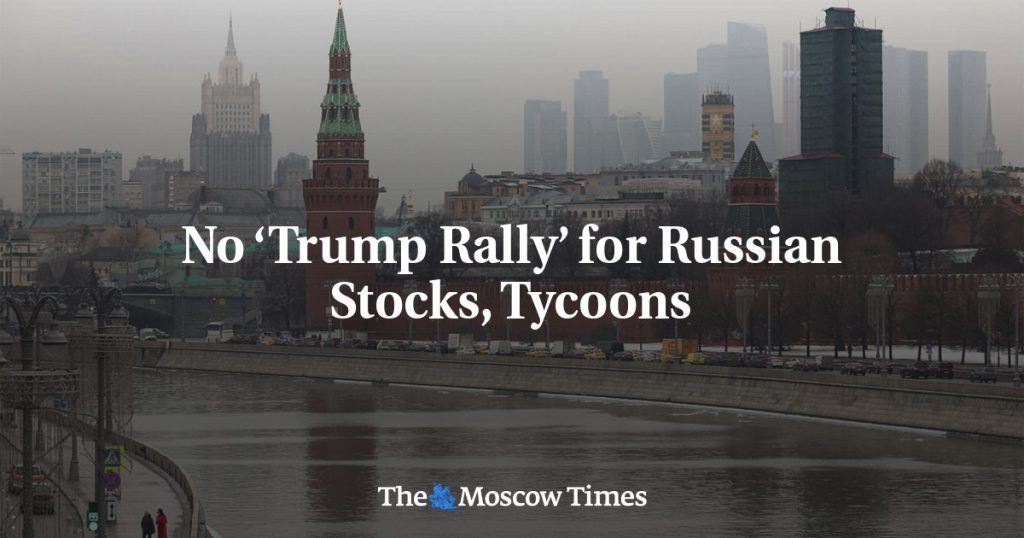With the U.S. stock market seeing record gains after Donald Trump’s election victory, analysts question whether the Russian market can experience a similar rally like in 2016. The S&P 500 index reached a historic high following Trump’s victory, but the Russian benchmark stock index remained lower than it was before Russia’s invasion of Ukraine. While the Russian market saw some gains after Trump’s victory, the prospects for further growth are uncertain as the Central Bank continued to tighten monetary policy by raising the key interest rate.
Russian analysts are skeptical that the market can witness the same Trump rally as in 2016 due to multiple factors. Firstly, the poor relations between the U.S. and Russia are unlikely to change, given the ongoing conflict in Ukraine and efforts to limit Russia’s energy revenues. Additionally, Russia is less connected to the global system compared to 2016, leading to the positive sentiment in U.S. markets not necessarily impacting Russia. The Russian market’s response to global dynamics is muted due to greater international barriers to capital flows, causing it to remain at annual lows.
The business community in Russia is not optimistic about Trump’s second term bringing positive changes, with little expectation of sanctions being lifted on Moscow. The head of the Russian Union of Industrialists and Entrepreneurs does not anticipate Trump removing sanctions. Few business elites in Russia have reacted to the U.S. election, with some speculating on potential impacts on oil prices. Despite Trump’s win benefiting U.S. businessmen, the fortunes of Russian businessmen have not seen a significant impact.
The Russian market’s performance post-Trump’s victory is influenced by factors like the ongoing Ukraine-Russia war, continued sanctions, and Central Bank’s monetary policy. The rise in Russian stock prices following Trump’s win was short-lived, reflecting the uncertainty surrounding the market’s prospects. With the Federal Reserve and Russian Central Bank taking different monetary policy paths, the divergence in market performances is evident. While the U.S. stock market continues to see historic highs, the Moscow Exchange Index remains low due to tight policy.
The fluctuating market conditions in Russia are further impacted by Trump’s policies and statements regarding Ukraine and global commodity markets. Analysts suggest that Trump’s potential conciliatory moves on Ukraine may not significantly change Russia’s situation. The positive sentiment in Russia following Trump’s victory is likely to be short-lived, as there are doubts about tangible actions towards Russia. The interconnectedness of global markets may not benefit Russia as much as it did in 2016 due to greater international barriers. The uncertainty surrounding Trump’s impact on Russia’s economy continues to be a concern for investors and analysts.














